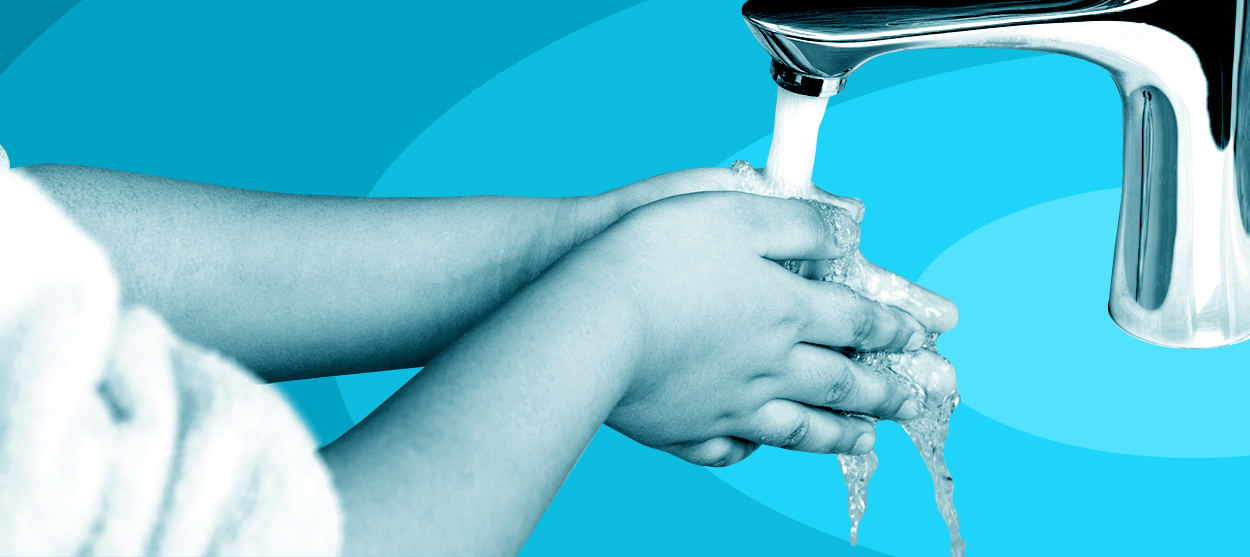How to make sure your kids are washing their hands
Helpful hygiene tips for handwashing at home, at school, or anywhere else


A free daily email with the biggest news stories of the day – and the best features from TheWeek.com
You are now subscribed
Your newsletter sign-up was successful
Wash your hands! It's a message parents start trying to hammer into their kids from a young age. These days, with the rapid spread of COVID-19, it's more pertinent than ever. The Centers for Disease Control and Prevention (CDC) has long recommended people wash their hands (with soap and clean, running water) to help curb the spread of bacteria and viruses that can cause infection.
The problem, of course, is that kids don't always follow instructions. As frustrating as this can be, it's not entirely their fault, says pediatrician Kelly Fradin, M.D. "Developmentally, the frontal lobe — the part of the brain responsible for judgment — isn't fully developed until the mid-20s," she reveals. "By age 4, many children seem to master the sequence of events involved in handwashing: turn the water on, soap the hands, scrub, rinse, and dry. But it's rare that they have the self-discipline to do so reliably and completely."
This means supervision is required when handwashing matters most: before mealtimes, after school and play dates and activities, and before coming into contact with an infant or a grandparent. There's no magical age when kids no longer need their handwashing supervised, Fradin says. What's more, parents should be aware that, when left to their own devices, older children (and adults, too, for that matter) often don't wash their hands well.
The Week
Escape your echo chamber. Get the facts behind the news, plus analysis from multiple perspectives.

Sign up for The Week's Free Newsletters
From our morning news briefing to a weekly Good News Newsletter, get the best of The Week delivered directly to your inbox.
From our morning news briefing to a weekly Good News Newsletter, get the best of The Week delivered directly to your inbox.
What's the best technique?
If you've never shown your kids how they should wash their hands — and let's be honest, most people didn't know there was actually a technique until the new coronavirus took over the news in January — it's a multi-step process.
After wetting their hands with clean, running water (it doesn't matter if it's warm or cold), your kids should turn off the tap, apply soap, and rub their hands together to create a lather. Then comes the important part: scrubbing.
"Make sure kids scrub both the front and the back of their hands," says WebMD medical director Hansa Bhargava. "They need to get in between their fingers and under their fingernails." They should scrub for at least 20 seconds — that's the time it takes to hum or sing the "Happy Birthday" song twice, Bhargava says. If that doesn't appeal to older kids, find a 20-second clip on YouTube they can play to make the process more fun.
A free daily email with the biggest news stories of the day – and the best features from TheWeek.com
Remember, kids imitate what their caregivers do, so set a good example. "Let them see you wash your hands often — and properly," says pediatrician Palmo Pasquariello, M.D. from NYU Langone Global Pediatrics. "'Do as I do' and not 'do as I say' is the best advice in this case."
What about at school?
"If every child sanitizes and washes their hands upon arrival at school, before eating, and at dismissal, it would reduce the spread not just of novel coronavirus but also Flu, RSV, and other common viruses that cause stomach bugs," Fradin adds.
Unfortunately, this isn't standard practice at schools. "It can be a time and resource intensive commitment," Fradin explains. "But when parents start these conversations with schools they create an opportunity to review what the school is doing to otherwise prepare for possible viral transmission."
If you're worried that your kids aren't washing their hands at school, Fradin recommends collaborating with their teachers to ensure hand hygiene is built into the routine. "It's unrealistic to expect elementary age children to go out of their way to wash hands without the environment being set up to accommodate this — such as accessible sinks and paper towels and sanitizer mounted by school entrances and cafeterias," she says.
Finally, here's a simple test of your kids' handwashing skills: "Use something that washes off easily — a washable marker, for instance — and put it on their hands," Pasquariello says. "By the time it is washed off completely, you can be sure their hands are clean."
Want more essential commentary and analysis like this delivered straight to your inbox? Sign up for The Week's "Today's best articles" newsletter here.
Claire Gillespie is a freelance writer with bylines on Health, SELF, Refinery29, Glamour, The Washington Post, and many more. She likes to write about parenting, health, and culture. She lives in Scotland with her husband and six kids, where she uses every (rare) spare moment to work on her novel.
-
 Political cartoons for February 20
Political cartoons for February 20Cartoons Friday’s political cartoons include just the ice, winter games, and more
-
 Sepsis ‘breakthrough’: the world’s first targeted treatment?
Sepsis ‘breakthrough’: the world’s first targeted treatment?The Explainer New drug could reverse effects of sepsis, rather than trying to treat infection with antibiotics
-
 James Van Der Beek obituary: fresh-faced Dawson’s Creek star
James Van Der Beek obituary: fresh-faced Dawson’s Creek starIn The Spotlight Van Der Beek fronted one of the most successful teen dramas of the 90s – but his Dawson fame proved a double-edged sword
